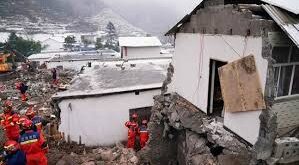
MOLTEN anger rolled through him as he beheld what was left of his small grocery enterprise.
Windows were shattered, the door vandalised and several grocery items missing while the remaining few were scattered all over the shop.
It is indeed a sorry sight and for a moment, he lost himself in undiluted fury.
Rage swept through him like lava, paving way for resentment which quickly grew inside him like a tumour, and there was nothing he could do about it.
In his rage, he was helpless.
Nothing beats the feeling of being gripped with rage without the capacity to exhibit it.
That was the predicament that befell Farai Moyo, a Zimbabwean entrepreneur based in Rosebank, a cosmopolitan commercial and residential suburb to the north of central Johannesburg, South Africa.
His small grocery shop was razed by a group of South African nationals named South Africa First who, in weeks preceding the incident had continuously threatened Moyo, telling him that he had overstayed his welcome in their country.
“They explicitly told me to go back to Zimbabwe because foreigners, particularly Zimbabweans, were no longer welcome in SA.
“I was given an ultimatum to stop doing business and threatened with unspecified action if I continued operating but I never thought they were contemplating destroying my shop,” said Moyo.
Moyo’s case is not an isolated one but is replayed in many locations across South Africa where Zimbabweans are living in perpetual fear of what might befall them if they do not leave South Africa urgently.
Areas like Diepkloof, Rosebank and Turfontein have over the past few weeks been epicentres of a rebellious movement targeting foreign nationals.
In November, the South African Cabinet announced that over 200 000 holders of the Zimbabwean Exemption Permit (ZEP) would need to apply for normal visas after the expiry of their special permits.
The ZEPs expired on December 31, last year but SA authorities gave a 12-months grace period for Zimbabweans to apply for other regular permits through the immigration legal framework.
However, South Africans are pushing Zimbabweans out of their country as soon as possible and started employing an array of methods within their arsenal to ensure the realisation of their goal.
The exact number of Zimbabwean migrants in South Africa is not known, but estimates range from a few hundred thousand to more than two million.
The situation has become toxic with some media outlets like the Sowetan siding with locals.
On Tuesday this week, the paper carried an opinion piece titled “Zim should recall its nationals from SA”.
This is despite calls for peace and tolerance by the Zimbabwe Community in South Africa spokesperson Bongani Mkhwananzi and the Embassy of Zimbabwe in South Africa.
The impact of the media in fuelling conflict cannot be overemphasised.
Zimbabweans in South Africa are now trapped between the proverbial rock and a hard surface as their continued stay in the country might spell doom while the trip back home may lead them to sink even deeper down the abyss of poverty.
Unemployment continues to skyrocket in Zimbabwe due to a myriad of factors ranging from viability challenges bedevilling most companies emanating from Covid-19 pandemic pressures.
“As it stands, the current economic situation is not sustainable for Zimbabweans currently residing in the country.
This week the US dollar parallel market rate rose steeply to RTGS$220 and ZWL$180 meaning the public has to brace for another rise in prices of basic goods and services.
“Upon hearing such things, Zimbabweans in SA think twice about coming back home because a significant number of them are informal traders and do not have anywhere to start when they come back.
At the same time, they are also concerned about their safety in the foreign land. It is a serious dilemma,” said economist Benedict Marufu.
Moyo decided to permanently settle in South Africa with his family in 2009 only coming to Zimbabwe to visit relatives.
“The thought of relocating to Zimbabwe unsettles me.
I have four children and an assortment of property so who will accommodate me in his home?
“Will I even find a place to rent? Even if I do, how will I sustain my family? I have been away for too long and am out of touch with how people are doing business in Harare,” Moyo said.
Joining the informal sector comes with its challenges in Zimbabwe where vendors are continuously engaged in cat-and-mouse games with city and town council officers.
More often than not, these officers demand bribes from vendors, further diminishing their already strained financial muscle.
Zimbabwean nationals in SA are also in the same predicament of cat and mouse where the only difference is that the South African situation is baying for Zimbabweans blood and not meagre bribes.
The crime they are being hounded for is the need to survive.
While some Zimbabweans are indeed engaging in nefarious activities, the majority are trying to honestly earn a living.
Leaving one’s homeland in search of greener pastures is not always an easy decision as it involves leaving close family members behind.
The economic situation in Zimbabwe is driving people out en masse while the one in SA is driving them out.
It is a serious albatross hanging on the heads of Zimbabweans.
One of the country’s foreign policy objectives speaks to: “The pursuit of policies that improve the standard of living of all Zimbabweans wherever they are” but the livelihoods of Zimbabweans at home and abroad are by no means an easy feat.
Analysts who spoke to the Independent noted that the government must act decisively before the lives of citizens in South Africa become death statistics. Zimbabwe Independent
 Nhau News Online News that is accurate, reliable, trustworthy!!
Nhau News Online News that is accurate, reliable, trustworthy!!
